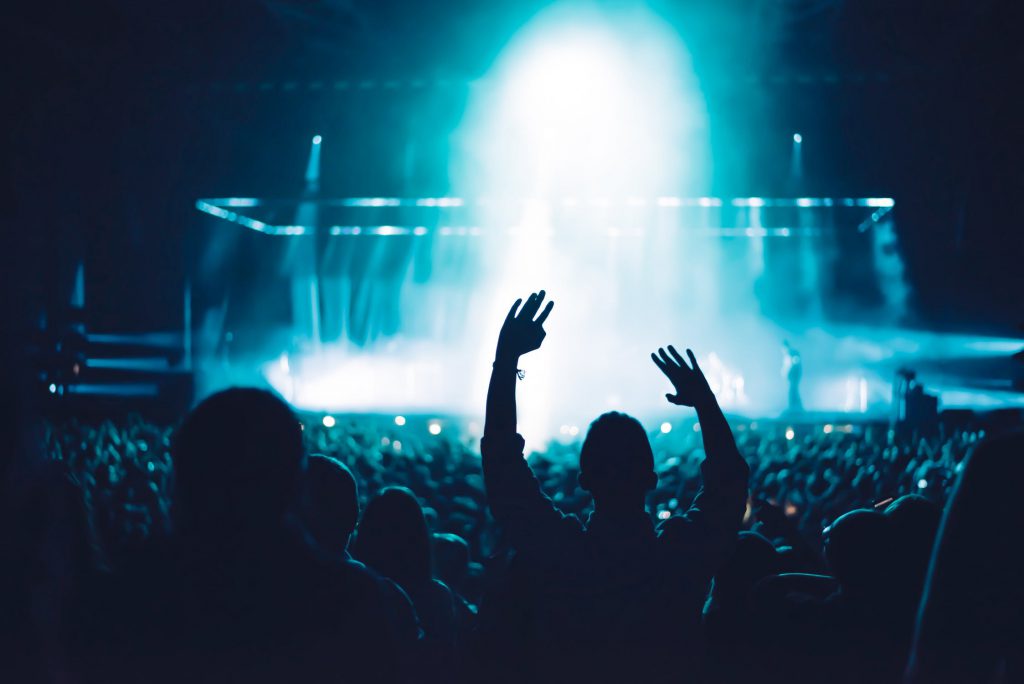December 3, 2020
The coronavirus pandemic has had a devastating effect on the music industry short-term. Live music revenue, which was predicted to generate almost £30bn for the industry in 2020, is set to take a 75 per cent hit globally. Small- and mid-sized venues are having to head back to the drawing board to develop new ways to cover their overheads, and artists and management are feeling the hole in their income widen with each cancelled show.
But the future of the industry across the globe remains uncertain. As is evident to any fan, so much of our relationship with music and the scenes we love depends on social interaction and sharing a space together, an experience which will be hindered until the COVID-19 pandemic is brought under control.
What endures for now, is a shared desire to see the music industry, and live music in particular, repaired and restored.

Carlotta de Ninni, CEO at The Creative Passport, believes this period of upheaval will herald a second digital wave – as was experienced when music streaming was first coming to prominence – causing a sea-change in the way we consume live music:
“We are experiencing a second digital wave. The first happened with the transition from physical records to downloads and streaming. Now it’s the turn of the live and concert sector.
“New technologies, from 5G to VR and the intersection between gaming and live performances, are really fuelling new opportunities and creating new business models for virtual concerts and experiences.
“What we must ensure is that these new business models and revenue streams will be fair and remunerative not only for industry players, but also and especially for the music makers themselves.”
What will the industry look like in 10 years? 2030 is sure to bring about change in music just as time brings change to other industries. Look what’s happening with the car business now around autonomous vehicles and the beginning stages of driving becoming a thing of the past.
New Genres Will Emerge
For high schoolers in the ‘90s, someone would ask “what’s your favorite kind of music?” and most people would have a definitive answer. Today, go ask the average high school student and you’ll get a melting pot of genres and eras: hip-hop, ‘70s rock, EDM, pop, and the list goes on. In the playlist era, your favorite music is whatever you’re listening to at the moment.
The kids of today are also the artists of tomorrow, which will no doubt result in the forming and establishing of new musical genres. We’ve already seen new sounds evolve in the streaming era such as trap, country EDM, hip-pop (think “Hotline Bling”).
Automation Will Be Used In The Song Creation Process
One of the scarier developments happening in the music industry is the use of A.I. in the songwriting and production process. In fact, this has already been happening as a 2016 experiment through Sony’s research labs showed where they used A.I. to create a Beatles-inspired song called “Daddy’s Car.”
Sure, it’s not “Hey Jude,” but considering it was generated by a computer makes it no less scary for songwriters, producers, and musicians. As record labels struggle to remain relevant and drive revenues, they also want to continue to reduce risk around the music they are putting marketing dollars behind. We already see it today with labels looking to social media numbers and existing streaming plays to take on low-risk projects. Don’t expect this to change as labels continue to look to things like automation to reduce exposure and increase chances of success.
Learn about the Matching Engine
The Matching Engine is a globally used application which can support CMOs across geographies to tackle the challenges posed by modern music streaming. Talk to our team today about how our cloud-native application can be integrated into your matching process.